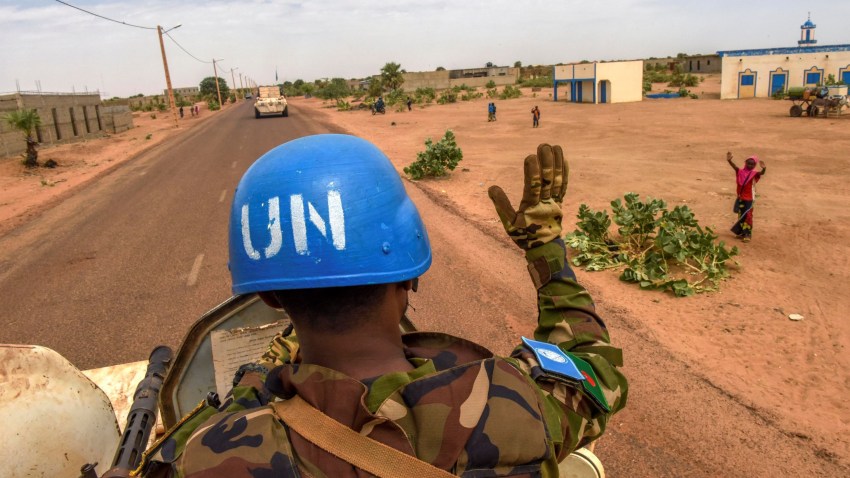When the government of Mali demanded last month that the United Nations withdraw peacekeepers from its territory “without delay,” it sent a chill through diplomats and international officials in New York. The stabilization mission in Mali, known by its French acronym MINUSMA, is one of four big blue-helmet operations in Africa, along with those in the Central African Republic, or CAR, the Democratic Republic of Congo and South Sudan. Together, they now account for the majority of U.N. deployments worldwide. Many observers at U.N. headquarters have speculated in recent weeks over whether Mali’s expulsion of MINUSMA could presage the end of these other missions, dealing a blow to the institution’s contribution to security in Africa.
MINUSMA, which first deployed in 2013 after France repulsed a jihadist attempt to seize control of Mali, has always had troubles. It has lost scores of peacekeepers to insurgent attacks, struggled to protect civilians and fallen out with successive Malian governments over human rights and political reforms. The country suffered two coups in 2021, and the military junta invited Russia’s Wagner Group to deploy forces to work with the army. But while MINUSMA has faced deep challenges, other big blue-helmet missions have faced similar problems, both in terms of preventing violence and in maintaining workable relations with host governments.
Senior U.N. officials have been increasingly frank about the difficulties these large missions in Africa face. Jean-Pierre Lacroix, the undersecretary-general for peacekeeping operations, recently acknowledged that the missions on his watch cannot achieve their “ultimate goal” of resolving conflicts, but must instead aim for “intermediate” goals such as preserving cease-fires.

